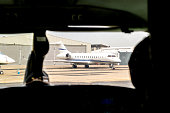Introduction
The private aviation sector has undergone important transformations over the previous few many years, driven by technological developments, altering consumer calls for, and evolving economic landscapes. Companies offering private plane companies have adapted to these changes, resulting in a various range of offerings that cater to numerous consumer needs. This case examine explores the evolution of private plane companies, the services they provide, their impression on enterprise travel, and the future of the trade.

Historic Context
The idea of private aviation dates back to the early 20th century, with the primary private flights taking place shortly after the arrival of economic aviation. Nevertheless, the sector started to achieve traction within the submit-World Struggle II era when surplus navy aircraft grew to become out there for civilian use. The 1960s and 1970s noticed the introduction of mild jets, making private flying more accessible to companies and affluent people.
By the 1980s, the rise of corporate jet travel marked a significant shift within the industry, as corporations acknowledged the value of time-saving journey choices. The introduction of fractional ownership applications in the 1990s further democratized entry to private aviation, allowing shoppers to purchase a share of an aircraft relatively than proudly owning it outright.
Types of Private Plane Companies
Private plane companies might be broadly categorized into a number of varieties, each serving distinct market segments:
- Charter Providers: These companies supply on-demand flight companies, permitting purchasers to rent an aircraft for a particular journey. Charter companies are common among companies that require flexibility and efficiency in their journey preparations.
- Fractional Possession: Companies like NetJets and Flexjet supply fractional possession applications, where purchasers buy a share of an aircraft. This mannequin offers the advantages of top 5 private jet charter companies jet ownership without the full financial burden.
- Jet Card Applications: Jet card companies provide purchasers with prepaid flight hours on quite a lot of aircraft. This feature is enticing for individuals who fly incessantly however don't need the commitment of ownership.
- Air Ambulance Services: Some private plane companies concentrate on medical transport, offering crucial air ambulance companies for patients in want of urgent care.
- Luxurious Travel Providers: A distinct segment segment of the market focuses on offering bespoke luxurious journey experiences, usually including extra companies reminiscent of floor transportation, catering, and concierge services.
Key Players within the Trade
Several firms have emerged as leaders in the private aviation sector, each with its unique worth propositions:
- NetJets: As a pioneer in fractional ownership, NetJets provides a fleet of over 700 aircraft and operates in varied countries. The corporate emphasizes safety, reliability, and exceptional customer support.
- Flexjet: Similar to NetJets, Flexjet supplies fractional ownership and jet card programs. The corporate differentiates itself by means of its concentrate on luxury private jet charter company and personalized experiences.
- VistaJet: Concentrating on the extremely-high-web-value market, VistaJet offers a novel subscription mannequin that enables clients to access a worldwide fleet of private jets with out the problem of ownership.
- Wheels Up: This relatively new entrant has disrupted the market with its membership-primarily based model, which provides access to a fleet of aircraft for a hard and fast annual charge, appealing to younger, tech-savvy travelers.
Financial Affect
The private aviation industry performs a vital role in the global financial system. It supports 1000's of jobs, from pilots and maintenance crews to floor employees and customer support representatives. Moreover, private aviation contributes to local economies by facilitating enterprise travel, tourism, and emergency companies.
According to a report by the Nationwide Business Aviation Affiliation (NBAA), business aviation generates roughly $one hundred fifty billion in economic output yearly within the United States alone. The trade also supports over a million jobs, highlighting its importance to the broader financial panorama.
Environmental Issues
As issues about climate change and sustainability grow, the private aviation trade faces increasing scrutiny regarding its environmental affect. Aircraft emissions contribute to global warming, prompting companies to adopt extra sustainable practices.
Many private plane companies are investing in newer, extra fuel-environment friendly aircraft and exploring various fuels to cut back their carbon footprint. Additionally, some companies are implementing offset programs to balance their emissions by investing in renewable energy projects.
Technological Innovations
The private aviation sector has embraced technological advancements to reinforce efficiency and customer experience. Innovations similar to advanced flight planning software program, real-time tracking methods, and in-flight connectivity have remodeled how purchasers work together with private aviation providers.
Moreover, the rise of digital platforms and cell apps has made booking private flights extra accessible. Companies like Wheels Up and JetSmarter have leveraged know-how to streamline the booking course of, permitting clients to secure flights with only a few taps on their smartphones.
Challenges Dealing with the Business
Regardless of its growth, the private jets charter near me aviation business faces a number of challenges:
- Regulatory Hurdles: Navigating advanced rules and compliance necessities could be a significant barrier for private airplane charter plane companies, significantly these seeking to develop internationally.
- Market Competitors: The increasing number of players available in the market has intensified competitors, main to cost wars and strain on profit margins.
- Changing Consumer Preferences: As youthful generations enter the market, private aviation companies must adapt to shifting shopper preferences, together with a demand for more sustainable and tech-pushed solutions.
Future Outlook
The way forward for private aviation seems promising, with continued progress anticipated in the approaching years. As companies increasingly recognize the worth of time-saving travel options, demand for private flights is likely to rise.
Additionally, the industry is predicted to see additional improvements in sustainability and know-how. The development of electric and hybrid aircraft may revolutionize the sector by offering extra environmentally pleasant travel options.
In conclusion, private plane companies have developed considerably over time, adapting to altering market dynamics and client needs. As the industry continues to develop and innovate, it should play a necessary role in shaping the future of enterprise and luxurious travel. The challenges forward will require strategic considering and adaptability, however the potential for progress and transformation stays huge.






